Twotimer®
How do I put together my berry assortment?
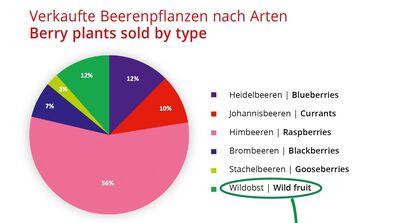
Hopefully they are on holiday. Or even better, enjoy the fact that everyone else is on holiday. But once again, every plant producer is wondering which berry plants, varieties and assortments to choose for next spring. Because soon the young plants will have to be ordered. At Lubera Edibles, too, young plant production is controlled according to the order history and incoming orders. Later in winter or spring, you then have to take what is still available.
Read moreBreeding progress – for what?

Why and for what does progress in breeding need to be made in plants for the home garden, especially in edible plants? Is there any advancement at all – or is it just less or more reproduction of the old, old wine being sold in new bottles? And if there are improvements, what are they focussed on and how can we sell them? These are the questions I would like to answer in this article, using raspberries as an example.
Read moreRaspberries 2023 – the ranking of varieties, growth types, fruit colours and plant sizes
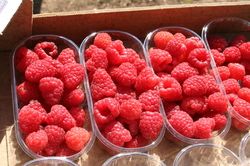
In the stationary market, the sales figures for the most important soft fruit variety, raspberries, are largely supply-driven: ultimately, what is sold is what buyers purchase and then what is offered at the points of sale. With the online range of our sister company Lubera.com, the situation is largely reversed: we sell what is in demand.
From mid-February until Christmas, a wide range of 36 raspberry varieties is continuously available. According to the sales figures at Lubera.com, we can...
Read moreRaspberry breeding at Lubera – the reinvention of the raspberry for the garden
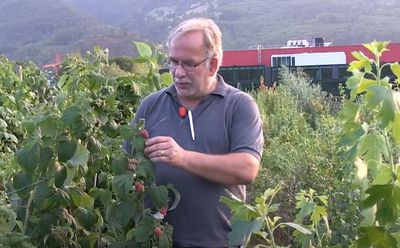
Raspberry breeding has been one of the largest breeding programmes at Lubera for over 20 years. Ultimately, only apple breeding is even older, which basically began when the company was founded in 1993. The first goal of raspberry breeding was simple and overdue: it was to replace the dominant Autumn Bliss raspberry with better varieties. To do this, we crossed Autumn Bliss with Tulameen together with Reto Neuweiler from the Wädenswil Research Station – this then resulted in the Autumn...
Read moreChef® raspberries – aromatic raspberries from your own garden
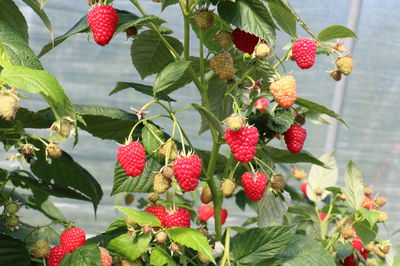
With the Chef® raspberries we can offer you two exceptional raspberry varieties, which are not yet available in this quality in the home garden sector. With these varieties, the Lubera® breeding team has finally succeeded in doing away with the old wives' tale that large raspberry fruits do not taste good. The ideally complementary raspberry varieties 'Summer Chef®' and 'Autumn Chef®' offer an extraordinary taste experience that is second to none.
Read moreSchlaraffia® raspberries – raspberries that work for the gardener
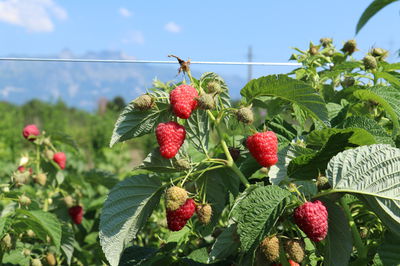
Schlaraffia® raspberries are simple autumn raspberries that offer a large harvest. Schlaraffia® is synonymous with the land where milk and honey flow and these raspberries grow directly into the mouth of the connoisseur. With the Schlaraffia® raspberry varieties, the gardener no longer works for his/her plants, no, the raspberries do (almost) all of the work themselves – the perfect varieties for the lazy but intelligent gardener...
Read moreRaspberry plants with yellow leaves – symptoms and causes
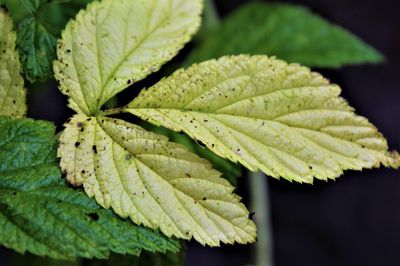
That raspberry plants get yellow leaves is basically not a question but a statement. And it is relatively unimportant whether it is at a hobby gardener's home, during the production of pot/container plants, in our variety garden or even at our breeding facility. But as diverse as the individual raspberry varieties are, so versatile are the causes of the yellow leaves. And there is not always a serious disease behind it; it can also be a completely natural physiological effect. In the following...
Read moreFAQ Raspberries
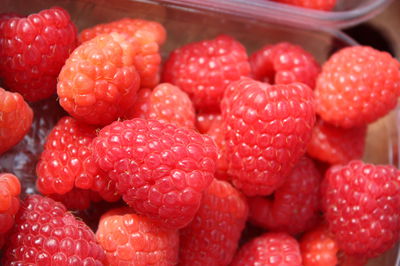
One of the previous articles dealt, among other things, with the number of complaints about raspberry plants. What if the end consumer, i.e. the home gardener, comes to your company to complain about raspberry plants that did not grow well? We have compiled the most important questions and answers on the subject of raspberry plants for you. These are not so much cultivation tips for the production and cultivation of raspberry plants, but rather tips and tricks for the end consumer, which you are...
Read moreThe production of raspberries in sets
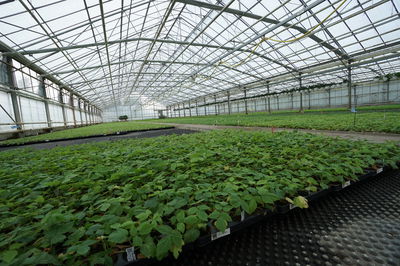
The past years have already indicated it and this year's “Corona spring” has confirmed it: the demand for 'edibles' – plants with edible parts – continues. Especially in this special year, there were phases in which the hunger for edible plants could hardly be satisfied, or in some cases not at all. Raspberries were particularly affected by these supply shortages, as they were hardly available, especially at the end of spring/beginning of summer. How could one prevent...
Read moreComplaint rates and sales opportunities for raspberry plants
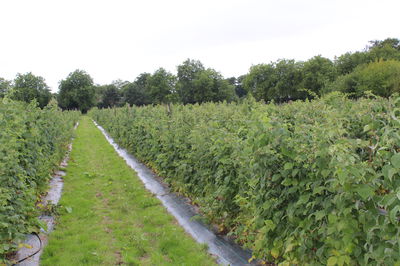
Every producer of raspberry plants knows this: there are complaints from end consumers and, based on these, also from retail outlets. Raspberries are among the plants for which a certain rate of complaints can be expected, even if one has completely fulfilled one's task as a young plant producer and of course as a plant producer. What is behind this phenomenon? When is the main complaint made, and could this not also be used as a sales argument? We have analysed and evaluated the complaints at...
Read more